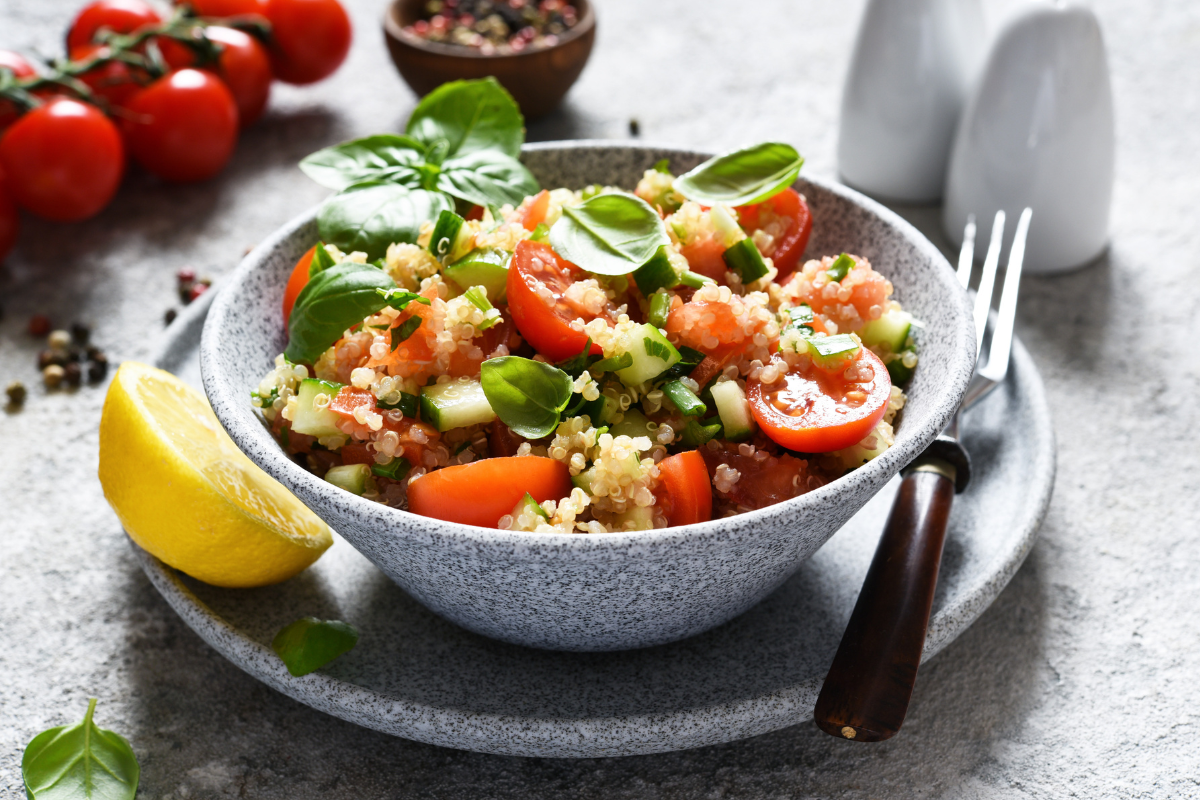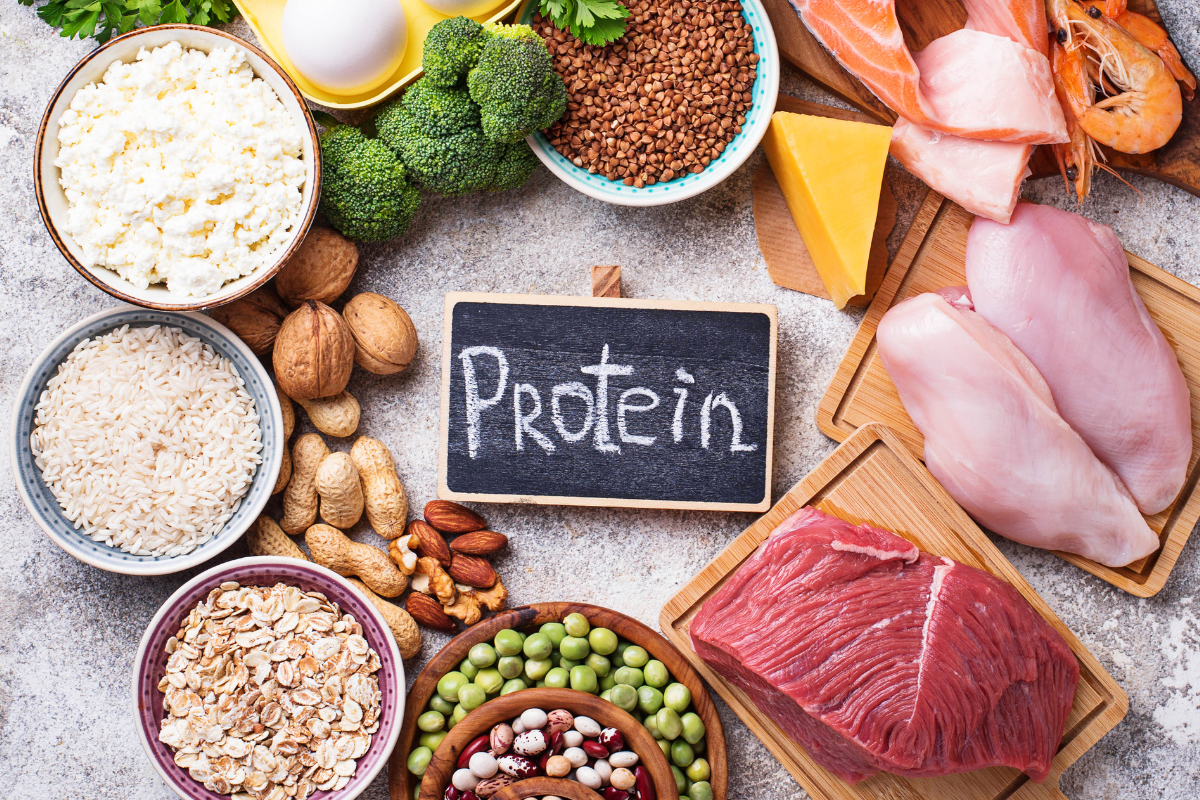Fertility Nutrition 101: How Your Diet Impacts Conception
When you’re trying to conceive or planning to start a family in the near future, there’s no shortage of advice—some of it contradictory—about what you should eat. From strict elimination diets to exotic superfoods, it can be overwhelming to figure out what’s actually helpful. That’s why at OVU, we’re here to provide clear, science-backed guidance so you can feel empowered, hopeful, and confident about the choices you make for your body.
Why Fertility Nutrition Matters
Fertility isn’t just about one organ or one hormone. It’s a complex interplay of your entire endocrine (hormonal) system, reproductive organs, and even mental well-being. Nutrition sits at the foundation of all these processes. When you nourish your body with the right balance of macronutrients (protein, carbohydrates, and fats) and micronutrients (vitamins and minerals), you’re creating an optimal environment for:
-
Hormone regulation: Specific nutrients help maintain balanced levels of estrogen, progesterone, and other reproductive hormones.
-
Egg quality and ovulation: Certain antioxidants and vitamins can support healthy egg maturation, improve ovulation, and even help reduce inflammation.
-
Overall well-being: Let’s not forget mood, energy, and stress levels. A balanced diet can help you feel better, which in turn can support healthy hormone function.
Key Research Insight
A study published in the journal Obstetrics & Gynecology by researchers at the Harvard School of Public Health found that women who followed a fertility-focused dietary pattern—rich in plant-based protein, whole grains, and healthy fats—experienced better ovulatory function than those who did not.[1] While every person’s fertility journey is unique, research like this continues to highlight the important role of a well-rounded diet.
The Role of Key Macronutrients
Proteins: Building Blocks for Life
Proteins are fundamental to nearly every cellular process, including hormone production and the development of healthy eggs. Aim for a variety of high-quality protein sources throughout your day:
-
Lean animal protein (chicken, fish, lean beef)
-
Plant-based proteins (lentils, beans, chickpeas)
-
Nuts and seeds (almonds, chia seeds, pumpkin seeds)
At OVU, we prioritize balanced protein content in our products because it supports stable blood sugar, sustains energy levels, and provides essential amino acids for tissue repair and hormone health.
Healthy Fats: Friend, Not Foe
Not all fats are created equal, but healthy fats are essential for hormone production and overall health. Incorporating sources of omega-3 fatty acids like salmon, walnuts, flaxseeds, and chia seeds can help reduce inflammation—a factor that can affect fertility. Other beneficial fats from avocados, olive oil, and nut butters also play a role in maintaining balanced hormones and supporting cell function.
Carbohydrates: Choose Wisely
Carbohydrates often get a bad reputation, but when you focus on complex carbs—like quinoa, brown rice, and sweet potatoes—you’re getting vitamins, minerals, and fiber that can support stable blood sugar levels. Spikes in blood sugar and insulin can interfere with hormone function, so opt for high-fiber carbs and pair them with protein or healthy fats for a balanced meal or snack.
Micronutrients: Small But Mighty
Folate (Vitamin B9)
Folate is critical even before you become pregnant, as it helps in the formation of the neural tube (which later becomes the baby’s brain and spinal cord). The Centers for Disease Control and Prevention (CDC) recommends that all women of childbearing age consume adequate folate or folic acid to reduce the risk of neural tube defects. Dark leafy greens like spinach, broccoli, and kale, as well as legumes and fortified cereals, are excellent sources of folate.
Pro Tip: Many fertility and prenatal supplements include folic acid (the synthetic form of folate) because it’s more stable. If you’re unsure about which supplement is right for you, consult a healthcare professional for personalized guidance.
Iron
Iron is essential for oxygen transportation in the blood. Low iron levels can lead to anemia, which can affect ovulation and general energy levels. Lean red meat, beans, and spinach are iron-rich foods that can help boost your ferritin (stored iron) levels. Pair iron sources with vitamin C-rich foods (like oranges or bell peppers) to enhance absorption.
Vitamin D
Vitamin D plays a role in hormone regulation and can impact fertility. Sun exposure is a natural way to boost vitamin D, but depending on your location and lifestyle, it might be challenging to get enough. Fatty fish (like salmon and sardines), egg yolks, and fortified dairy products can help, but you may also need a supplement. Testing your vitamin D levels through a simple blood test can guide a personalized approach.
How Diet Affects Hormone Balance
Your endocrine system—responsible for producing hormones—relies on consistent, balanced nutrition. Blood sugar spikes and crashes can lead to an overproduction of insulin and cortisol (the stress hormone), which can disrupt the balance of reproductive hormones like estrogen and progesterone.
-
Stable blood sugar can help keep hormones in check. Aim to include protein, fat, and fiber in every meal or snack to prevent extreme fluctuations.
-
Reducing inflammation through a diet rich in antioxidants (from fruits, vegetables, herbs, and spices) may also help improve ovulatory function.
Incorporating OVU into Your Routine
At OVU, we’ve harnessed these foundational principles to create snacks and supplements that can easily fit into your daily routine. Think of OVU bars as an on-the-go, fertility-focused snack that provides balanced macronutrients—protein, healthy fats, and slow-burning carbs—along with key micronutrients like folate and iron. While our products are never a substitute for a varied diet, they’re a convenient way to fill in nutritional gaps, especially on busy days when meal planning falls to the wayside.
Why Choose OVU?
-
Balanced Protein: Supports hormone health and tissue repair.
-
Essential Micronutrients: Helps meet daily requirements for vitamins and minerals that are crucial for conception and early pregnancy.
-
Clean Ingredients: Formulated without unnecessary additives, so you can feel confident about what you’re putting in your body.
Research Highlights
Below are some reputable studies and resources to explore if you’re looking for a deeper dive:
-
Chavarro, J. E., et al. (2007). “A Prospective Study of Dietary Patterns and Ovulatory Infertility.” Obstetrics & Gynecology, 110(5), 1050-1058.
-
Harvard T.H. Chan School of Public Health: Nutrition and Fertility Resources.
-
Centers for Disease Control and Prevention (CDC): Folic Acid Guidelines.
-
The American College of Obstetricians and Gynecologists (ACOG): Nutrition in Pregnancy.
Quick Tips to Get Started
-
Prioritize Whole Foods: Incorporate a rainbow of fruits and vegetables, whole grains, lean proteins, and healthy fats into your meals.
-
Snack Smart: Keep OVU bars on hand for a convenient, fertility-friendly boost.
-
Stay Hydrated: Aim for at least 8 glasses of water a day (more if you’re exercising).
-
Plan Ahead: Meal prep on weekends or select a few favorite quick recipes to rotate through the week.
-
Consult a Pro: If you have specific concerns or a history of fertility challenges, consider working with a registered dietitian or fertility specialist.
Conclusion: Taking the Next Step with Confidence
Your fertility journey is as unique as you are. But one thing remains constant: a balanced, nutrient-rich diet can set a strong foundation for conception and overall well-being. At OVU, we believe in providing science-backed, hope-filled guidance to help you navigate these early steps. Whether you’re just starting to think about conceiving, already trying, or simply exploring how to optimize your health, we’re here to support you every step of the way.
Stay tuned for more blog posts packed with practical tips, heartfelt support, and expert insights. And if you’re looking for a simple yet effective addition to your nutrition routine, don’t forget to check out our OVU offerings. Remember: small changes, done consistently, can make a big difference in your fertility journey.
Author’s Note:
As someone who has personally navigated fertility challenges—and dove headfirst into nutrition research along the way—I know that every bit of reliable information can bring relief and empowerment. It’s my hope that this post inspires you to explore your dietary choices with optimism and curiosity. After all, fueling your body well isn’t just about preparing for the possibility of pregnancy; it’s also about nurturing yourself in the here and now.
If you have questions or suggestions for future blog topics, feel free to reach out! The OVU community is all about shared experiences and knowledge. We’re in this together, and we can’t wait to support your healthy, hopeful journey.
(Disclaimer: This blog is for informational purposes only and does not constitute medical advice. Always consult with a healthcare professional for personalized recommendations.)






